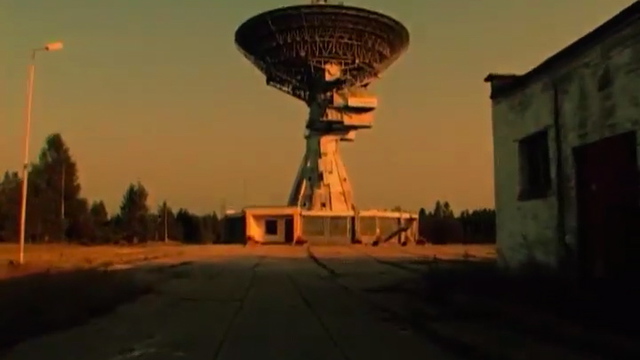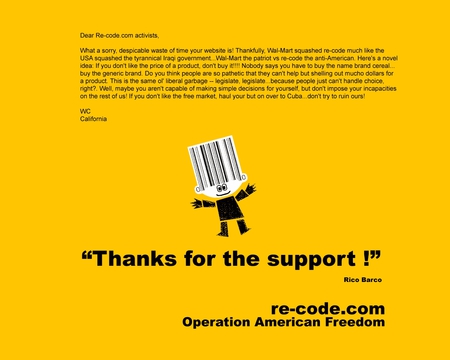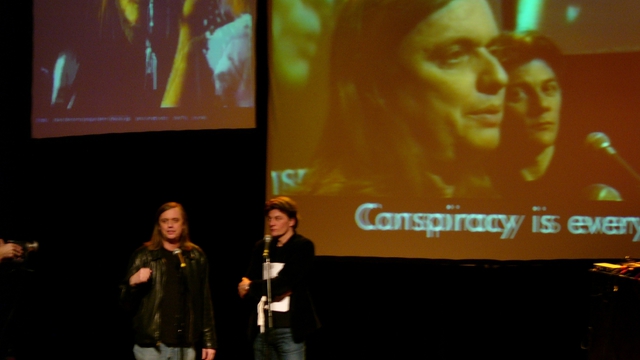Search results for 'radio'
Minor Media Normality in the East
1. Autogenerative Europe
In our imagination, eastern Europe was always black and white. Traveling to East Germany or Poland meant suddenly leaving colorful western Europe and entering a movie from the forties or fifties. Later we simply couldn't remember having seen any color, not the green of the trees, nor the red of the brick buildings. When we went to the movies to see a film by Wajda, Kieslowski or Tarkowsky, the filmmaker's experiments with color only reinforced our image of the east as gray. Europe clearly had an ideologically motivated neurosis when it came to the perception of color.
Dictionary of War - Novi Sad Edition
After a one year break the DICTIONARY OF WAR continues with a fifth edition on January 25th and 26th, 2008 in Novi Sad, Serbia. Again 25 new concepts on the topic of war will be presented in alphabetical order by artists, theorists, filmmakers, scientists, researchers. Loosely based on the slogan: "At least, when we create concepts, we are doing something" DICTIONARY OF WAR is a collaborative platform for creating concepts.
ReadA context for collecting the new media
At the turning of the year 1992 I received the program and manifesto for the Next 5 Minutes Conference in Paradiso. As professional collector of documents by and about social movements for the International Institute of Social History, the list of videos to be shown caught my attention immediately. This was an excellent opportunity to realize something for which I had been trying already for some time, to make an international sample collection of products from the movement of new independent video makers.
ReadIntro for Net. activism Forum
Ten years ago, there were few online activists and they believed that "cyberspace" was all theirs, a territory from which to emerge anywhere, outflanking the lumbering second-wave dinosaurs responsible for the Cold War and its successor, the McWorld. In the future that actually unfolded, the dinosaurs learned to boot up computers, connect to the Internet and post Web pages, or pay someone to do all this for them. What was a poor online activist to do? Even the son of Slobodan Milosevic has a Web site, to promote his Belgrade dance club.
Linda Herrera
Linda Herrera (PhD Columbia University, MA, American University in Cairo, BA UC Berkeley) joined the Department of Educational Policy Studies at the University of Illinois at Urbana-Champaign as Associate Professor and core staff in the Global Studies in Education MA program in January 2011. Prior to that she was a Senior Lecturer in International Development Studies (2005-2010) at the International Institute of Social Studies of Erasmus University Rotterdam where she was Convenor of the Children and Youth Studies MA specialization. Her major research interests and writing are around issues of Youth and citizenship in the Middle East and North Africa (MENA); critical ethnography of schooling; youth, employment and international development policy; democracy and education; and, more recently, youth, new media and Arab Revolution.
ReadStop Streaming and Listen: Fight Post-Governmental-Content-Control Streaming Media breaks UK law - find out why nobody wants to care...
Streaming media deliver video or audio content over the web. But streaming media are very different from the web. In the UK such formats force BT to breach the Broadcasting and Telecommunications Act. To the grass-roots activist web-critics, this might be the right (and most likely only) time to pull the plug and prune the web. Alternatively we could happily stream on and witness how independent media production will be pushed to the periphery of the new order. Here is one of many scenarios...
Sarai - The new media initiative, Delhi
Sarai is a programme of the Centre for the Study of Developing
Societies, (CSDS) one of India?s leading research institutes with a
commitment to critical and dissenting thought and a focus on critically
expanding the horizons of the discourse on development, particularly
with reference to South Asia.
Tactical Media in Brazil - Submidialogia conference report
The four-day conference on the campus of the Universidade Estadual de
Campinas (Unicamp) brought together many key persons from the tactical
media movement of Brazil and some of their counterparts in the
Brasilian government.
The movement is converging from roots in
free radio, free software, hardware hacking, art and social movements.
It is currently focussed around a large-scale project master-minded by
Claudio Prado and supported by the Ministry of Culture: ?Pontos de
Cultura? (Culture Spots) which is aiming to empower up to 600 cultural
projects with free software-based multimedia production and publication
facilities.
Palestine the US and Satellite Television
Sixty-two-year old Jordanian Labibeh Tannous was trying frantically to
decide which satellite dish to buy. Should she go for the simple kind
that only has the Arab satellite stations that goes for about $100 or
should she go for a rotating dish that can pick up European stations as
well which can be bought for about $150?
Her interest reflects both how inexpensive satellite dishes have become
and the great thirst people throughout the Arab world have to go beyond
what their national station is providing in television news.
The Next 5 Minutes
tactical media event
Amsterdam & Rotterdam, The Netherlands, 12-14 March, 1999
www.n5m.org
(Source: Updated announcement Feb 11, 1999)
Next 5 Minutes 3
Amsterdam & Rotterdam, The Netherlands, 12-14 March, 1999
The third Next 5 Minutes, an Amsterdam based conference on tactical communications culture, featuring do-it-yourself media, dissident art and electronic media activists from around the world, took place on the 12th, 13th and 14th of March 1999.
N5M3 archived festival website
ReadPractices of resistance and enthusiasm in Brazil
Motivated by the theories of Richard Stallman, Lawrence Lessig, Geert Lovink and David Garcia, Brazilian Internet users, activists and artists are, more and more, developing attractive activism and tactical media projects.
Read30 Years of Tactical Media
This is a short text [1] which appears in "Public Netbase: Non Stop Future. New Practices in Art and Media" edited by the fine people at the New Media Center_kuda.org, in cooperation with World-Information Institute / t0. This book was presented at Transmediale 2009 in Berlin.
http://nonstop-future.org
Tactical media as a practice has a long history and, it seems save to predict, an even longer future. Yet its existence as a distinct concept around which something of a social movement, or more precisely, a self- aware network of people and projects would coalesce has been relatively short lived, largely confined to the internet's first decade as a mass medium (1995-2005).
Tactical Television in Italy
Overview and manifesto of urban tv movements in Italy
Pit Stop Manifesto
1. Internet culture will bring the US, Western Europe, and the UK closer in to mental alignment,





